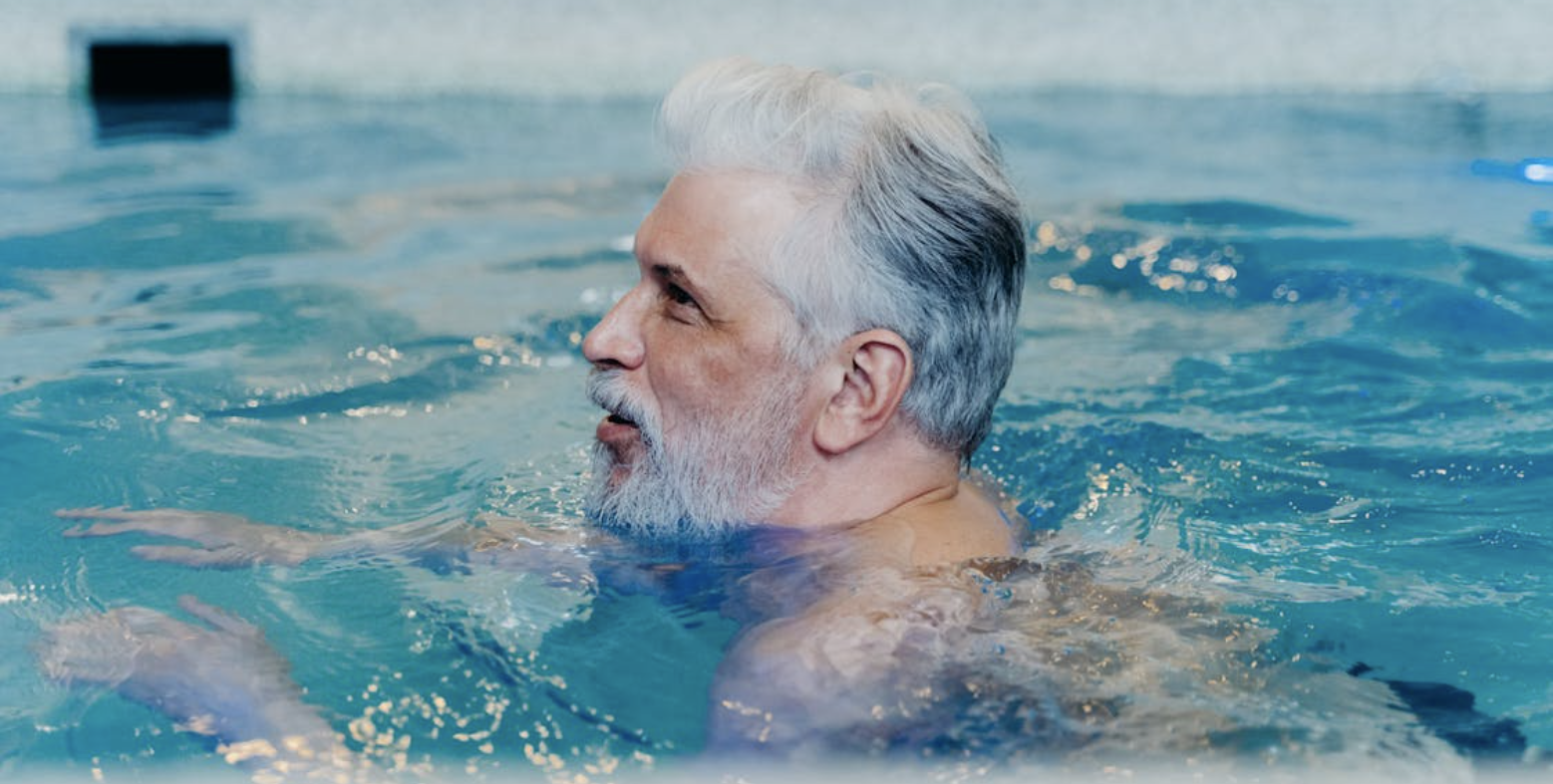Speak to a local care advisor at Assisted Living Locators by calling (888)-267-4741.
Learn about Assisted Living, Senior Living, Memory Care, and In-home care options.
Spring marks the onset of warmer weather, blooming flowers, and, for many, the unwelcome arrival of allergy season. For seniors, managing allergies becomes a more complex task due to age-related changes in the immune system, which can struggle to combat allergens effectively, leading to amplified or prolonged symptoms such as sneezing, itchy eyes, and even rash. The primary culprits of these symptoms, airborne allergens like pollen from trees, grasses, and weeds, and mold spores, trigger the body’s immune response. This response mistakenly identifies the pollen as harmful, resulting in the release of histamines that cause inflammation and a range of allergy symptoms.
Understanding and addressing senior allergy management is crucial, especially given the heightened risk factors due to an aging immune system. Symptoms like hives, atopic dermatitis, wheezing, and more severe reactions such as anaphylaxis can exacerbate existing chronic conditions, posing greater health risks. This guide aims to navigate the complexities of allergies in older adults, offering strategies from medical consultations and allergy tests to lifestyle modifications and allergy treatment options like antihistamines and allergy shots. With a focus on minimizing exposure to allergens and creating an allergy-friendly home environment, this comprehensive spring guide is dedicated to improving the quality of life for seniors with allergies.
Identifying Common Allergy Symptoms in Seniors
Allergies in seniors can manifest in various ways, presenting unique challenges due to the aging immune system, known as immunosenescence. Recognizing and understanding these symptoms is crucial for effective management and treatment. Here is a breakdown of common allergy symptoms and their prevalence among the elderly:
- Seasonal Allergies: Commonly triggered by pollen, dust, and mold, these allergies can lead to symptoms such as:
- Sneezing
- Runny nose
- Red, watery, and itchy eyes
- Headache
- Coughing and congestion
- Food and Drug Allergies: While less prevalent than in younger individuals, food and drug allergies in seniors can be particularly perilous due to the potential for interaction with multiple medications. Symptoms may include:
- Mild to severe skin rashes
- Digestive issues
- Anaphylaxis in severe cases
- Prevalence and Testing: Studies indicate that 5-10% of the elderly population suffer from allergies, with a higher incidence of atopy in individuals over 60 years old. Allergy testing is vital to identify specific allergens for targeted management strategies.
Understanding these symptoms and their prevalence is the first step towards crafting a personalized allergy management plan for seniors, ensuring a better quality of life during allergy season.
Importance of Medical Consultation
Understanding the necessity of medical consultation for senior allergy management is paramount. Here’s a breakdown of critical steps and considerations:
- Initial Consultation and Diagnosis:
- Detailed Medical History and Observation: Crucial for pinpointing potential allergens affecting seniors.
- Consulting Specialists: Involvement of allergists or immunologists can provide a comprehensive approach to diagnosis and treatment.
- Allergy Testing Methods:
- Skin Tests: Small amounts of allergens are introduced to the skin. Special considerations for seniors include decreased skin reactivity and medication interference.
- Blood Tests (RAST/ELISA): Measures IgE antibodies to specific allergens, beneficial when skin tests are impractical.
- Safety, Efficacy, and Precautions:
- Interpretation of Tests: Requires expertise due to age-related immune system changes.
- Pre-Treatment Consultation: Essential before starting new treatments or medications to ensure safety and effectiveness.
- Monitoring and Precautionary Measures: Continuous observation for adverse reactions, with a focus on precautionary measures like nasal steroids and topical medications to mitigate seasonal allergies.
Seniors and caregivers must prioritize consulting healthcare providers to navigate the complexities of allergy management effectively, considering the unique challenges posed by aging.
Strategies for Minimizing Exposure to Allergens
To effectively minimize exposure to allergens for seniors, adopting a multi-faceted approach that addresses both outdoor and indoor triggers is essential.
Outdoor Allergen Minimization Strategies:
- Stay Indoors: During peak pollen times, typically in the morning and evening, it’s advisable for seniors to stay indoors. Monitoring local allergen forecasts can aid in planning outdoor activities on lower-risk days.
- Protective Gear: When venturing outside, wearing a mask and using a pollen mask and gardening gloves during activities like gardening can significantly reduce allergen exposure.
- Air Quality: Keep windows and doors closed to prevent pollen from entering. Utilize air conditioners and air purifiers with HEPA filters in homes and cars to filter out contaminants.
Indoor Allergen Reduction Tips:
- Dust and Vacuum Regularly: Using a vacuum with a HEPA filter and dusting surfaces helps control dust mites and pet dander. Wash bedding in hot water weekly.
- Moisture Control: Use dehumidifiers to maintain humidity below fifty percent, fix leaks, and limit house plants to reduce mold spores.
- Pet Dander Management: Keep pets out of bedrooms, cover vents, replace carpets with bare floors, and groom pets regularly.
By incorporating these strategies, seniors can significantly reduce their exposure to allergens, contributing to a more comfortable and symptom-free living environment.
Medications and Treatments
For seniors navigating the complexities of allergy management, personalized treatment plans and medication management are crucial. An allergist tailors these plans to the individual’s symptoms, triggers, and medical history, ensuring the most effective medications are prescribed. This approach aids in symptom control, significantly improving the quality of life for seniors.
Medication Options for Senior Allergy Management:
- Antihistamines:
- Preferred: Second and third-generation antihistamines (e.g., loratadine, fexofenadine) due to fewer side effects.
- To Avoid: First-generation oral antihistamines (e.g., diphenhydramine, chlorpheniramine) because of a higher risk of complications.
- Decongestants: Generally not recommended for seniors, especially those with high blood pressure.
- Nasal Steroids: Over-the-counter options like Flonase are often the first line of treatment for seasonal allergies.
- Allergy Shots (Immunotherapy): May be considered for persistent issues, with careful monitoring for risks.
Considerations for Seniors:
- Pharmacokinetics and pharmacodynamics change with age, affecting how drugs are absorbed, distributed, metabolized, and excreted.
- The volume of distribution varies due to differences in protein-binding capacity and body composition, necessitating personalized dosing.
- Liver metabolism can be a critical factor in drug efficacy and safety for the elderly.
Navigating medication management for senior allergy sufferers requires a careful, tailored approach, considering the unique physiological changes that accompany aging.
Natural Remedies and Lifestyle Modifications
Incorporating natural remedies and lifestyle modifications can significantly enhance the management of allergies in seniors, focusing on reducing inflammation and boosting the immune system.
Dietary Adjustments for Allergy Relief:
- Anti-Inflammatory Foods: Incorporate foods known for their anti-inflammatory properties, such as:
- Walnuts and leafy greens for omega-3 fatty acids.
- Apples, strawberries, and citrus fruits rich in Vitamin C.
- Ginger and turmeric for their natural anti-inflammatory effects.
- Avoid Inflammatory Foods: Limit intake of processed foods, sugars, and trans fats which can exacerbate allergic reactions.
Natural Remedies and Lifestyle Changes:
- Nasal Irrigation: Utilize saline nasal rinses or neti pots to flush allergens from the nasal passages, reducing congestion and irritation.
- Steam Inhalation: Add eucalyptus or peppermint oil to hot water for steam inhalation to help clear nasal passages.
- Herbal Teas: Drink teas containing natural anti-inflammatory agents like chamomile, ginger, or peppermint to soothe symptoms.
- Regular Exercise: Engages the body’s natural anti-inflammatory responses, helping to reduce allergic reactions over time.
Boosting Immunity Through Nutrition:
- Vitamin and Mineral Supplementation: Consider physiological zinc and vitamin D supplementation, as deficiencies in these nutrients can weaken the immune response, especially in seniors.
- Immunity-Boosting Foods: Focus on a diet rich in fresh fruits and vegetables, fatty fish, and nuts to support a healthy immune system, vital for combating allergies effectively.
Creating an Allergy-Friendly Home Environment
Creating an allergy-friendly home environment involves a comprehensive strategy to minimize indoor allergens. Here are effective steps to achieve this:
- Air Quality Control:
- Install a high-efficiency particulate air (HEPA) filter in the HVAC system to trap pollen, dust, mold spores, and other allergens.
- Use air purifiers with small-particle or HEPA filters in frequently used rooms to scrub the air clean.
- Regularly change air filters to maintain optimal indoor air quality, and inspect and maintain the HVAC system to prevent allergen circulation.
- Surface and Fabric Management:
- Vacuum with a double micro-filter bag or HEPA filter every other day, especially if you have carpeting. Opt for hard flooring and window treatments that don’t collect dust to further reduce allergen presence.
- Deep clean sheets weekly in hot water (at least 130°F) and use a hot drying cycle. Use hypoallergenic bedding and apply dust-proof covers on pillows, mattresses, and box springs.
- Declutter spaces to minimize dust collectors like stuffed animals and excessive throw pillows.
- Pet Allergen Management:
- Set a regular grooming schedule for pets to minimize dander.
- Keep pets out of the bedroom and living areas as much as possible to reduce the spread of pet dander. Use a vacuum designed for pet hair to keep surfaces clean.
By implementing these measures, seniors can significantly reduce their exposure to allergens, making their homes safer and more comfortable during allergy seasons.
Conclusion
Throughout this comprehensive guide, we’ve explored the multifaceted approach needed for effective senior allergy management during the challenging spring season. From understanding the nuances of aging immune systems and common allergy symptoms in seniors to delving into the importance of medical consultations, testing, and personalized treatments, our journey has provided a holistic view of combating allergens. The guide also emphasizes the significance of creating an allergy-friendly living environment and adopting lifestyle modifications, highlighting essential strategies to reduce exposure to common allergens and improve overall well-being for seniors.
As we conclude, it is evident that managing allergies in seniors requires a carefully tailored approach that takes into consideration the unique challenges posed by aging. Implementing the strategies outlined, from medication management and natural remedies to environmental adjustments, can significantly enhance the quality of life for seniors facing allergy seasons. It calls for a collaborative effort between seniors, caregivers, and healthcare providers to ensure a safe, comfortable, and symptom-free existence despite the presence of allergens.
FAQs
What are the top treatments for springtime allergies?
The most effective treatments for spring allergies include oral antihistamines, which can alleviate symptoms such as sneezing, itching, and watery eyes. Popular oral antihistamines are cetirizine (Zyrtec Allergy), fexofenadine (Allegra Allergy), and loratadine (Claritin, Alavert).
Which allergy medication is considered the most effective?
Nasal steroids like Flonase (fluticasone propionate) are deemed the most effective for allergy relief. However, it’s important to note that they may take up to two weeks to become fully effective.
Are there any drinks that can help alleviate allergy symptoms?
Yes, increasing your intake of liquids such as water, juice, and other nonalcoholic beverages can help with allergy symptoms like stuffiness or postnasal drip by thinning the mucus in your nasal passages. Warm fluids, including teas, broths, or soups, are particularly beneficial as the steam they produce can also provide relief.
What factors can exacerbate spring allergies?
Spring allergies can worsen due to warmer winter weather, which can lead to a longer and more severe allergy season. Changes in weather affect pollen levels, directly impacting allergy symptoms. A rise in temperatures results in increased levels of spring pollen.












